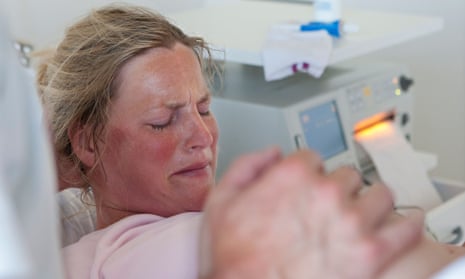Medical staff and midwives should not intervene to speed up a woman’s labour unless there are real risks of complications, says the World Health Organisation (WHO), warning that too many are not having the experience of natural childbirth that they want.
New guidance from the WHO overturns decades of previous advice, which said that labour which progressed at a slower rate than 1cm of cervical dilation per hour in the first stage was risky. Women are often given the drug oxytocin to speed up labour and end up with epidurals because of the pain, followed by forceps or vacuum deliveries and in some cases a caesarean section.
That old guidance “may be unrealistic for some women and is inaccurate in identifying women at risk of adverse birth outcomes”, says the agency.
“Many women want a natural birth and prefer to rely on their bodies to give birth to their baby without the aid of medical intervention,” says Ian Askew, director of the WHO’s department of reproductive health and research. He added: “Even when a medical intervention is wanted or needed, the inclusion of women in making decisions about the care they receive is important to ensure that they meet their goal of a positive childbirth experience.”
Every year there are about 140 million births, most of which are uncomplicated. Yet women are increasingly being subjected to medical interventions in the name of risk-avoidance, which may be unnecessary and unwelcome to them, says the WHO. The caesarean section rate in particular is too high around the world and as major surgery, carries risks of its own.
“We want women to give birth in a safe environment with skilled birth attendants in well-equipped facilities. However, the increasing medicalisation of normal childbirth processes are undermining a woman’s own capability to give birth and negatively impacting her birth experience,” says Dr Princess Nothemba Simelela, WHO assistant director-general for family, women, children and adolescents.
“If labour is progressing normally, and the woman and her baby are in good condition, they do not need to receive additional interventions to accelerate labour.”
About 830 women die from complications in pregnancy or childbirth around the world every day. Most could be prevented with high-quality care in pregnancy and during childbirth.
